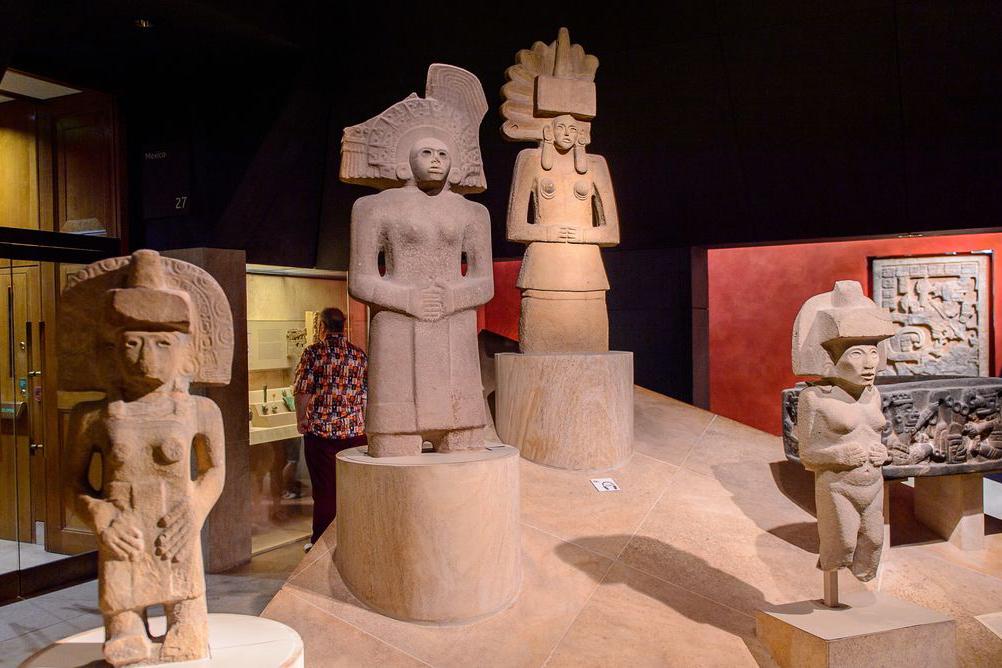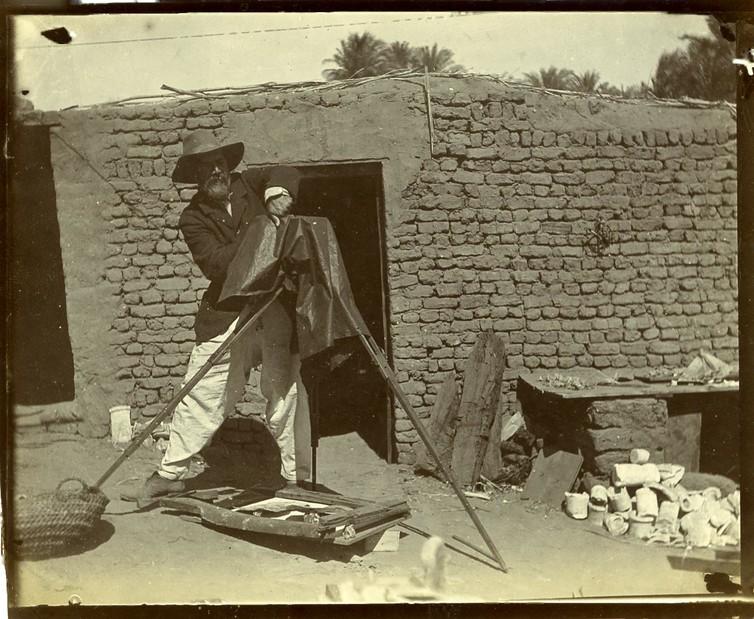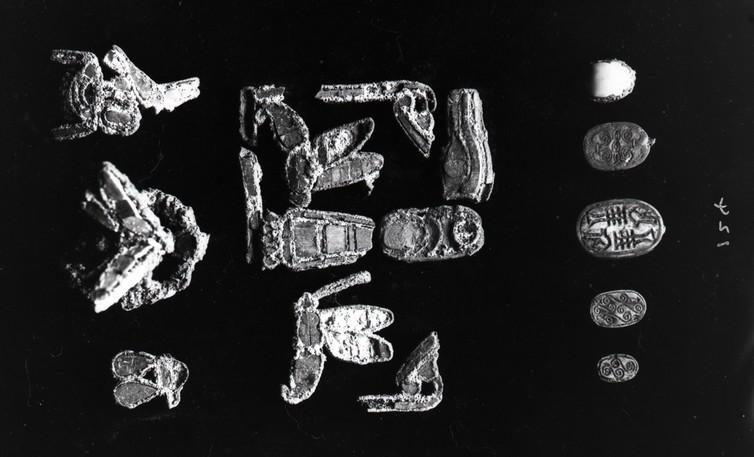Why archaeological antiquities should not be sold on the open market, full stop
Sales of antiquities legally excavated are just as ethically problematic as those likely looted

Your support helps us to tell the story
From reproductive rights to climate change to Big Tech, The Independent is on the ground when the story is developing. Whether it's investigating the financials of Elon Musk's pro-Trump PAC or producing our latest documentary, 'The A Word', which shines a light on the American women fighting for reproductive rights, we know how important it is to parse out the facts from the messaging.
At such a critical moment in US history, we need reporters on the ground. Your donation allows us to keep sending journalists to speak to both sides of the story.
The Independent is trusted by Americans across the entire political spectrum. And unlike many other quality news outlets, we choose not to lock Americans out of our reporting and analysis with paywalls. We believe quality journalism should be available to everyone, paid for by those who can afford it.
Your support makes all the difference.Illicit antiquities are once again in the headlines. US retailer Hobby Lobby was recently fined $3m (£2.3m) for illegally acquiring antiquities that were most likely looted from Iraq.
Collectors and museums are therefore being reminded to undertake due diligence in checking collections’ histories before purchasing cultural property.
The implication here is, of course, that when the item on the auction block has been legally excavated and diligently recorded by archaeologists, there isn’t a problem. This is an enormous mistake. Such sales may be legal, but they are still ethically problematic.
At its most direct, the public auction of archaeologically procured finds puts those objects at risk of disappearing into the private domain, where their integrity is no longer assured.
There are no international legal protections, no “obligations of ownership”, for cultural property in private possession.
More broadly, the legal status of these sales confers an air of legitimacy to the antiquities trade. Yet as scholars have demonstrated, however one looks at it this is a “grey trade”. Illicit antiquities – that is things without provenance, accompanied by fake documents or with opaque ownership histories – are likely to be offered at the same sales. Examples of illicit antiquities pulled from a Christie’s auction in 2015 are a case in point.

Inflating prices
The origin of items offered by auction houses is supposed to be subjected to close scrutiny. This seems reassuring, but there’s a worry that the records of discovery made by archaeologists now not only certifies auction lots, but also inflates their monetary worth. And this in a wider art market where prices have never been higher and is at risk of severe overheating.
Whether they covet old masters or ancient pots, many bidders seek to acquire cultural capital – not out of some sort of honed connoisseurship or a sense of societal patronage – but as immediate monetary investments and as symbols of financial wealth. Exceptional prices are translated into headline news, reducing heritage to economic value and undermining attempts to promote meaningful engagements with the past. Sales from museums in this context threaten public trust in them.
Most seriously of all, these exorbitant prices and their media profile fuel market demand and become an incentive for looting. When heritage is sold by and for the privileged it is those that live in proximity to archaeological sites that stand to lose the most. It denies source communities the long-term touristic potential of sites, especially in countries where there is political and economic volatility or instability.
Looting can have devastating consequences – lives have been lost. Well-meaning efforts to protect heritage in situ have been advocated, but there needs to be more recognition that the problem often begins and ends with the art markets of Europe, North America and Asia.
Public to private
Despite all of these problems, sales of “licit” archaeological finds are still generally seen as unproblematic. Just how embedded this problem is can be seen from a case from October 2014, when two lots of Egyptian antiquities from the Archaeological Institute of America (AIAs) St Louis Chapter were offered for sale at Bonhams, London.
Lot 160 was billed as “the treasure of Harageh” and comprised a group of 4,000-year-old stone vessels and rare examples of inlaid silver jewellery. Lot 162 was made up of a single stone headrest. The former was removed from auction following the intercession of the Metropolitan Museum of Art and a private sale to it for an undisclosed sum, while the latter exceeded its estimated price at auction and disappeared into private hands.

These artefacts were originally discovered during excavations conducted under the auspices of Flinders Petrie’s British School of Archaeology in Egypt (BSAE), who had regulations on where objects should go. The finds were legally removed from Egypt, they were fully documented, duly published by the BSAE and a few delivered to the St Louis Museum in 1914 under the understanding that these were for public benefit, not for private profit. A century later the St Louis AIA branch contravened that agreement.
There were other options. The objects could have been donated to another institution capable of ensuring their long-term care and public accessibility (even if held in storage). But instead, they went straight to the auction house.
Time to speak out
When this auction was announced, a colleague and I condemned it in a public statement. But many believed our reaction was melodramatic. As far as they were concerned the sale was completely above board. It did not even breach AIA’s own ethical codes, which at the time only denounced the “trade in undocumented artifacts”.
But given the hugely problematic implications of selling material on the open market, we must be vocal in denouncing instances in which archaeological heritage is commercialised in this way. The former editor-in-chief of the American Journal of Archaeology agreed. This is especially important given the current ideology of austerity in many countries, leading to concerns that institutions may begin to consider their public collections as financial assets rather than as cultural obligations.
Yet museums still dispose of heritage from other countries on the open market. Toledo Museum of Art in Ohio sold ancient Egyptian artefacts from its founding collection in winter 2016 through Christie’s, despite an outcry from the Egyptian authorities. At the same time, it has been shown that other parts of Toledo’s collection which are being retained are likely to include illicit antiquities.
We have a strong moral obligation to challenge these “legal” sales. Over the past two centuries, millions of archaeological artefacts have been excavated and exported by rich colonial nations from developing countries whose own resources are now desperately stretched as they attempt to halt the destructive looting of their heritage for a first world market. At the very least we should be responsible and accountable on their behalf for material we excavated and exported. We should not condone those that seek financial profit from the past, which is the sole objective of auction houses.
Alice Stevenson is a senior lecturer in museum studies at UCL. This article was originally published on The Conversation (www.theconversation.com)
Join our commenting forum
Join thought-provoking conversations, follow other Independent readers and see their replies
Comments